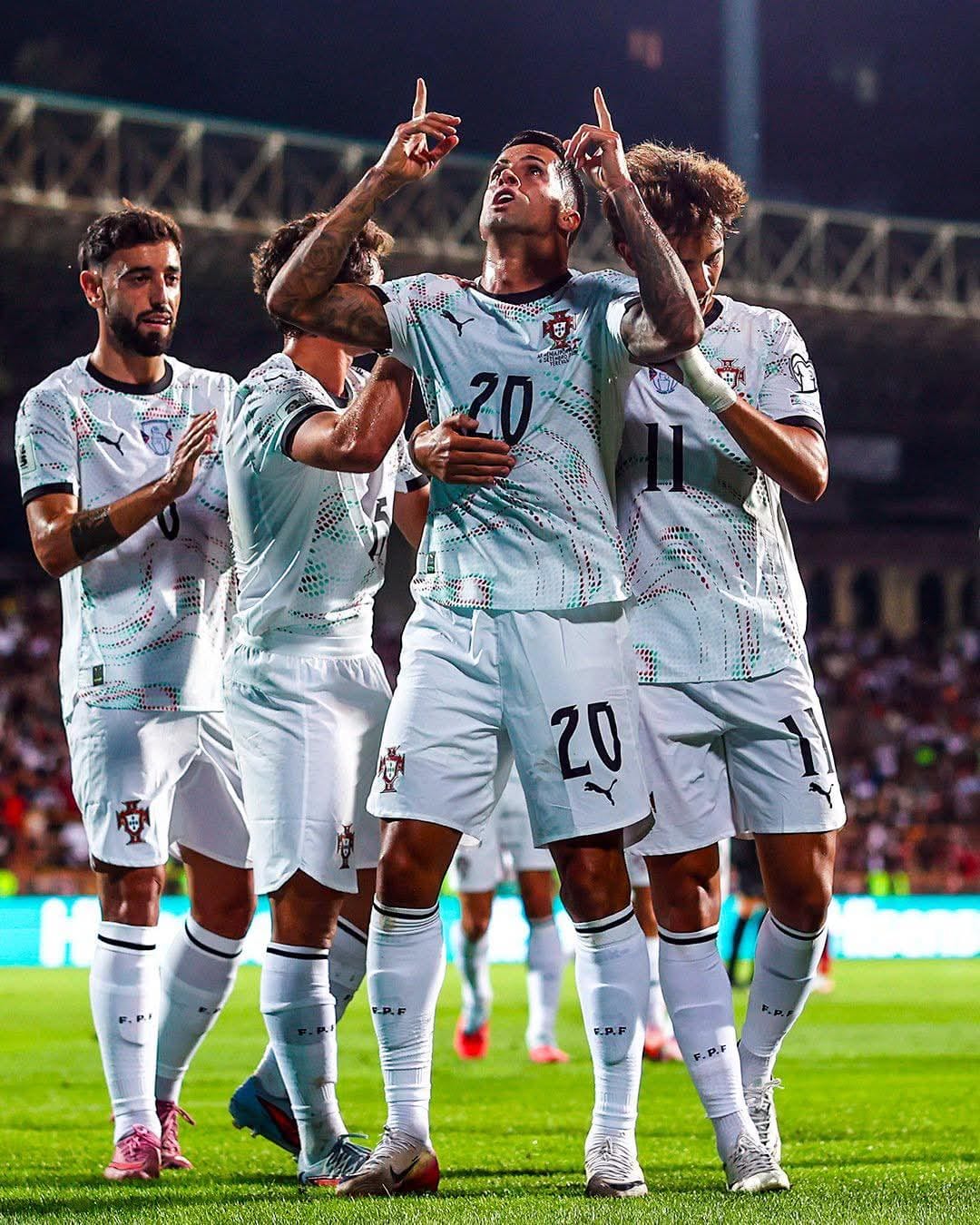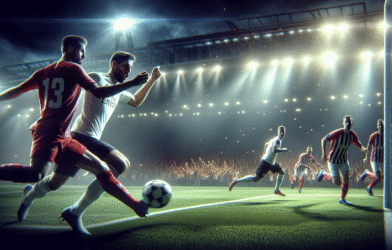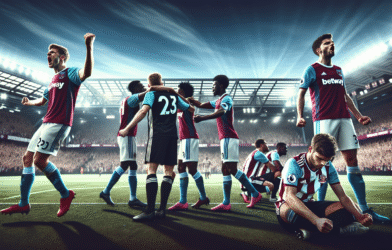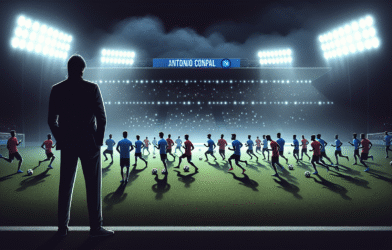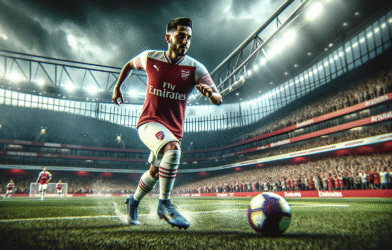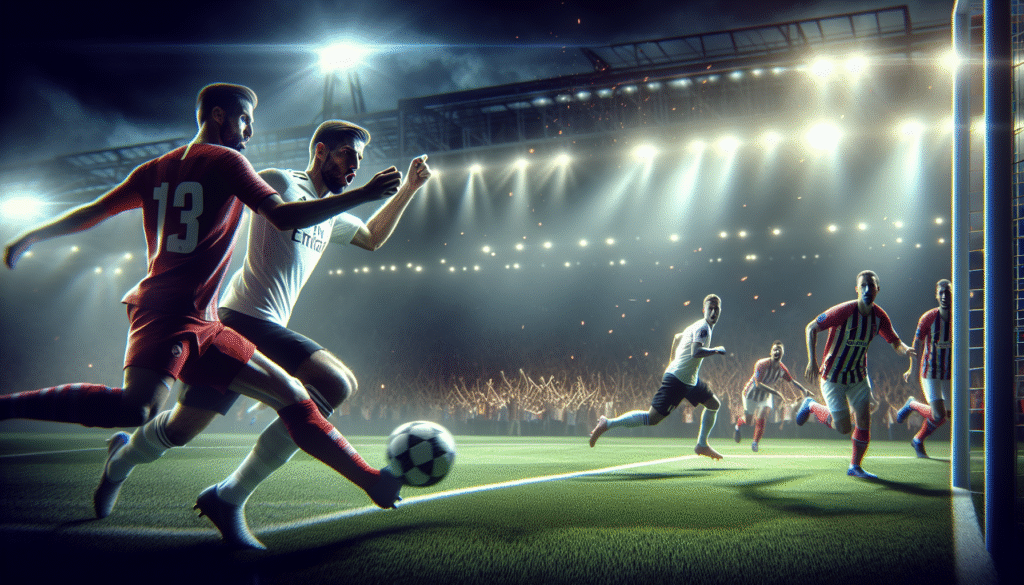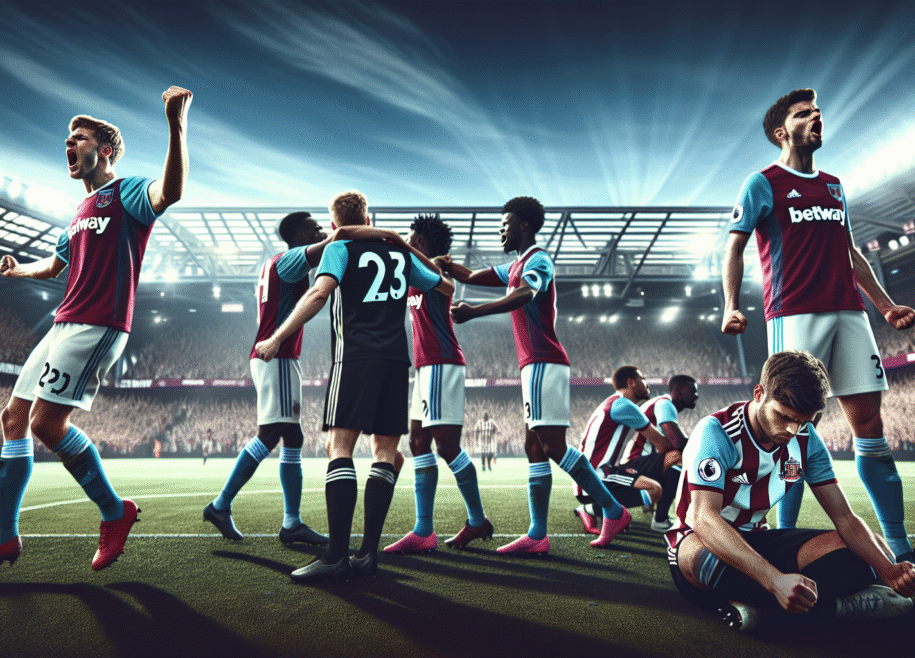Subtotal $0.00
Match Overview
Ronaldo’s Impact in Attack
The opening minutes set the tempo as Portugal dominated the tempo and pressed relentlessly higher up the pitch. Cristiano Ronaldo led the charge, moving between lines, pulling Armenia’s defense out of shape, and creating space for teammates. The night belonged to the captain, whose presence alone elevated the level of the performance. The result was a Cristiano Ronaldo Portugal win, a shorthand for the leadership and finishing quality that defined the encounter. His positioning was flawless, and his movement off the ball drew defenders away, creating pockets of space for runners in behind. It wasn’t just about the goals; it was about how Ronaldo’s urgency shaped Portugal’s attacking intent from whistle to whistle. This was a display that reinforced his status as a world-class figure, even as he continued to age with grace and effectiveness.
Beyond the finishing, Ronaldo’s influence was audible as well as visible. His commands on the field helped coordinate the pressing rhythm and spacing, ensuring Portugal kept Armenia on the back foot. The team responded with sharp, purposeful passing and intelligent off-ball runs. The blend of experience and energy created a high-output performance that left little doubt about Portugal’s intent. In short, the night reinforced the narrative of a Cristiano Ronaldo Portugal win not merely because he scored twice, but because his leadership underpinned a cohesive, attacking display that will matter in upcoming fixtures.
Rhythm and Overall Performance
Portugal controlled the game through a sustained combination of high pressing, quick transitions, and efficient possession. The tempo was consistent, never allowing Armenia to settle, and Portugal exploited spaces behind the defense with rapid, well-timed runs. The tactical balance was solid: the backline stayed compact, the midfield shielded the defense, and the forward line stretched the opposite flank with purposeful movements. Ronaldo’s work rate helped sustain this approach, forcing mistakes and creating turnover opportunities that fueled counter-attacks. The collective effort—not just the goals—highlighted Portugal’s overall performance as superior on the night and a reminder of their depth and organization.
In terms of build-up play, Portugal delivered clean transitions from defense to attack. The ball moved quickly through midfield, with precise passes opening gaps in Armenia’s lines. When the opportunities came, Ronaldo seized them with clinical efficiency. The result was a confident display that reflected a team prepared to control proceedings and dictate the tempo. The match underlined the focus keyword again: Cristiano Ronaldo Portugal win, a label that captures both individual brilliance and team cohesion throughout the 90 minutes.
Ronaldo’s Brace: First and Second Goals
First Goal: Edge of the Box Precision
From the edge of the box, Ronaldo uncorked a powerful, accurate strike that rattled the net and signaled his intent early on. The shot bent slightly but found its target with surgical precision, a reminder that his finishing touch remains razor-sharp. The goal epitomized Ronaldo’s ability to pick the right moment to strike, converting a half-chance into a definitive moment. It was not only about power but placement, as the ball flashed past Armenia’s goalkeeper with minimal margin for error. The hit reinforced the message that this match would be shaped by Ronaldo’s willingness to take responsibility in front of goal.
The sequence that led to the goal demonstrated his understanding of space. He read the defender’s movement and timed his run to perfection, ensuring he remained onside and ready to capitalize. With the goal, the captain extended his international tally and reminded spectators that his finishing instinct remains intact, even as new generations of players emerge. The first strike was a clear demonstration of why Ronaldo’s presence continues to define Portugal’s attacking identity and why the focus keyword Cristiano Ronaldo Portugal win carries real weight in this context.
Second Goal: Timed Run and Composure
The second goal mirrored the first in its clinical finish and the sense of inevitability around Ronaldo’s runs. Timing and speed combined to pierce Armenia’s defense, with Ronaldo timing a precise run off the shoulder of a central defender before finishing with composed aplomb. He didn’t rush the shot; he waited for the moment to align his body and strike cleanly into the far corner. The composed finish highlighted his athleticism and poise in front of goal, underscoring the ongoing relevance of a player who can blend instinct with method and transform a game with a single moment.
That second strike wasn’t merely a repetition of the first; it showcased Ronaldo’s evolution as a player who reads play across phases. He pinned back Armenia by making intelligent off-ball movements, allowing teammates to find him at the edge of the box and then punishing defensive lapses with a well-timed finish. The brace reinforced the Cristiano Ronaldo Portugal win storyline, a demonstration of leadership, technique, and timing that will be referenced long after the final whistle. The pair of goals also raised Portugal’s confidence as they faced tougher challenges ahead, signaling an upward trajectory for the squad’s attack in future fixtures.
Leadership and Team Performance
Vocal Guidance and Tactical Discipline
Ronaldo’s influence extended beyond finishing. His vocal leadership on the field helped organize Portugal’s attacking runs and defensive shape. He directed teammates, urged patient build-up when necessary, and switched the emphasis to rapid transitions when opportunities arose. This leadership was a stabilizing force, maintaining discipline under pressure and keeping the team focused on their game plan. The ability to guide the team while performing at a high level is a hallmark of great captains, and Ronaldo delivered on that expectation in this match.
Such leadership also translated into tactical discipline off the ball. Portugal’s shape remained compact when Armenia pressed and fluid when space opened up in midfield. Ronaldo’s example encouraged others to stay precise with their movements, avoid duplicating runs, and commit to pressing in unison. The resulting teamwork was a key component of the victory, with a clear emphasis on structure, patient build-up, and aggressive pressing when opportunities appeared. This is exactly the kind of performance that keeps a squad in form ahead of tougher tests.
Supporting Cast: Midfield and Wingers
The supporting cast answered the call with intelligent rotations, quick passes, and reliable choices. Midfield runners found pockets in midfield, while wingers provided width and threat on the flanks, drawing full-backs out of position and creating room for Ronaldo’s runs. The balance between creativity and functionality was evident, as players combined自主 to exploit Armenia’s lines and maintain pressure across the 90 minutes. The involvement of the entire squad underscored the breadth of Portugal’s attacking options and the importance of depth in a campaign that demands consistency over a long cycle.
Portugal’s midfield controlled tempo while maintaining defensive integrity. The link between defense and attack was crisp, minimizing risk while maximizing transitional moments. The result was a performance that highlighted not only Ronaldo’s individual brilliance but the team’s ability to function cohesively around it. The victory thus carried a collective message: Cristiano Ronaldo Portugal win is a team achievement as much as a personal milestone, and this match proved that balance once again.
Tactical Notes: Portugal’s Dominance
High Press and Quick Transitions
The tactical plan hinged on a high-press approach that forced errors high up the pitch. Portugal pressed Armenia aggressively, denying time on the ball and forcing hurried decisions. When turnover happened, transitions were swift and efficient, catching the defense flat-footed and enabling quick combinations that produced quality chances. Ronaldo was central to this approach, but the entire squad synchronized their movements to ensure quick, sharp transitions that kept Armenia under constant strain. The outcome was a game controlled by tempo, with Portugal dictating play from start to finish.
Practically, the team’s pressing lines formed compact blocks, preventing Armenia from playing through the middle. When the ball was won, seconds mattered; Portugal moved it forward rapidly, with Ronaldo and other forwards leading the charge. This combination of pressure and speed overwhelmed the visitors at times and created a rhythm that Portugal sustained for the full 90 minutes. The result validated the decision to push higher up the field and to capitalize on the pace inside the attacking third, a key ingredient in any campaign that aspires to consistency and success.
Defensive Structure and Space Management
Defensively, Portugal remained organized and disciplined. The backline held its shape, with full-backs providing width while staying aware of Armenia’s counters. The midfield shield limited penetration, ensuring risks were minimized and chances to counter were kept under control. Ronaldo’s leadership helped unify this unit, ensuring that the structure did not waver during moments of pressure. The team’s ability to manage space, particularly behind the defensive line, reduced Armenia’s shooting opportunities and kept the game firmly in Portugal’s hands.
Their spatial management extended to attacking transitions, where Portugal exploited gaps with measured runs and patient build-up. The balance between aggressive pressing and compact defense proved to be a reliable blueprint. This tactical balance, combined with Ronaldo’s finishing and leadership, produced a performance that looked like a complete team effort rather than a collection of standout individual moments. It also set a strong precedent for how Portugal intends to approach more challenging fixtures throughout the campaign.
Implications for Portugal’s Campaign
Momentum and Standings
With the win, Portugal strengthened their position in the standings and built valuable momentum heading into tougher assignments ahead. The result boosted confidence within the squad and offered a clear signal to rivals about Portugal’s ambitions in the campaign. The dual goals from Ronaldo added a psychological edge, underscoring that the team can rely on leadership at key moments while continuing to diversify their attacking threat. This combination of confidence and resilience can be decisive in the long run.
In practical terms, the victory improved goal difference and provided three valuable points that could matter in a tight group. The team can now approach next fixtures with a greater sense of purpose, knowing they can win by applying sustained pressure and finishing when opportunities arise. The Ronaldo era remains anchored in a broader team project, and this match reinforced that the squad is capable of maintaining form across multiple fronts as the campaign progresses.
Road Ahead and Narrative for Ronaldo
The narrative around Cristiano Ronaldo Portugal win continues to evolve. While Ronaldo’s two goals provided a narrative focal point, the broader story is one of a team that can sustain pressure, press bravely, and convert chances when they appear. The win creates a fresh chapter in Ronaldo’s international career, highlighting his enduring influence and the way he motivates teammates to raise their level. While questions will inevitably arise about age and form, this match offered clear evidence that Ronaldo remains a decisive factor at the international level and will likely shape Portugal’s approach in subsequent fixtures.
As Portugal moves forward, the emphasis will be on maintaining high standards and building on this performance. The combination of leadership, tactical discipline, and depth gives the team a platform to pursue a successful campaign. For observers, the sight of Ronaldo driving Portugal’s attack will continue to be a defining feature, a reminder that the Cristiano Ronaldo Portugal win storyline is still very much alive and relevant to the team’s future ambitions. UEFA and FIFA will be watching closely as Portugal navigates the rest of the schedule, aiming for progression and success in the international arena.





